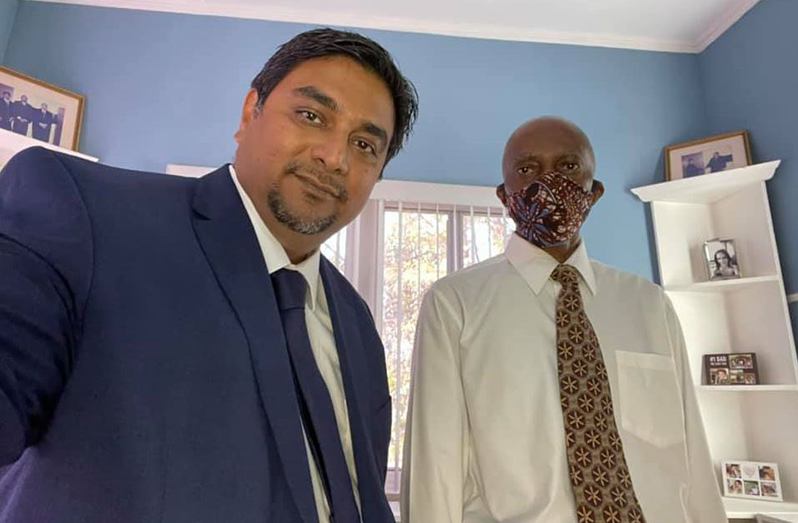MERE months away to mark 40 years after he was convicted for and sentenced to imprisonment for being in possession of an explosive device which killed his brother, Dr. Walter Rodney, Donald Rodney’s conviction was, on Tuesday, set aside by the Court of Appeal.
On June 13, 1980, Donald Rodney was in the driver’s seat of a Mazda Capella motor car bearing registration number PBB2344, which was at the time in a stationary position in the vicinity of John and Hadfield Streets, Georgetown.
At the same time, his brother, Dr. Walter Rodney, was in the front passenger seat of the said vehicle when an explosion occurred in the car which killed Dr. Walter Rodney, and left Donald Rodney with minor injuries.
On June 24, 1980, Donald Rodney was charged in relation to the incident for unlawful possession of explosives and was convicted on February 26, 1982 and sentenced to 18 months imprisonment.
On the day of the explosion, Donald Rodney had collected a ‘walkie-talkie’ for Dr. Walter Rodney, which was supplied by a then member of the Guyana Defence Force (GDF), Gregory Smith. The brothers were instructed to test the instrument near the Georgetown jail.
From all indications, Dr. Walter Rodney’s death was as a result of an explosion of the device provided to the brothers by Gregory Smith.
Following the conviction, Donald Rodney filed an appeal and was granted bail pending appeal. Despite being pardoned in 2014 by then President, Donald Ramotar, Donald Rodney sought to have his conviction and sentence overturned.
Through his Attorney-at-law, Sanjeev Datadin, he argued that the decision of the trial magistrate was unreasonable and could not be supported since there was no evidence. He has proffered several grounds in this regard.
“There was no evidence which was sought to say what was in possession was in fact a substance for which there would have been a level of control. There was no evidence led by the State that demonstrates that there was no lawful authority,” Datadin had told the court.
Rodney further argued that the magistrate failed to admit his defence, namely, the public eyewitness’s account by him, which precluded a charge of possession and was read into evidence in the court’s record by the police witness under oath, and the true unsworn statement he made in his defence in open court.
Additionally, he argued that the magistrate failed to allow him time and facilities to prepare his defence, a breach of his constitutional right under Article 144 (2) (C) of the Constitution of Guyana.
The Director of Public Prosecutions (DPP), Shalimar Ali-Hack, SC., told the Court that there was no evidence that Donald Rodney had been in possession of explosives.
“We don’t have sufficient evidence to prove that he was in possession of an explosive,” she told the court.
The DPP, in a brief comment following the conclusion of the matter on Tuesday in the Court of Appeal, noted that the decision of the court is in keeping with the law. “The case has spent an unduly long time within the criminal justice system,” a release from the Director of Public Prosecutions Chambers noted.
Chancellor of the Judiciary, Yonette Cummings, who set aside the conviction, will soon issue her written judgement.



.jpg)










